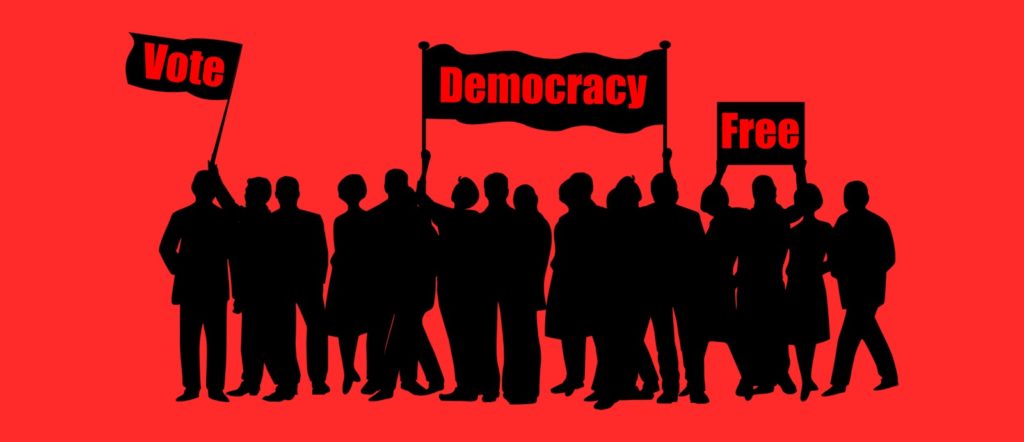
Civil Rights Movements, Democracy, and Buddhism
The Scheduled Caste constitutes 20 percent of India’s population according to NSSO. It translates into 240 million people. This is a big number, judged on the basis of the population of other countries. Though 240 million are divided on the basis of caste, they are united by a common history and future aspirations to be free. This gives a lot of space in the present to consolidate as a community. Already signs are visible when the Scheduled castes are increasingly working together from all over the places.
A grand solidarity is emerging. As the world is an interdependent reality and nothing happens in isolation, it is important to also launch the masses to face and deal with the interconnected reality of human existence. Many new tools of shaping and making public opinions are emerging. It seems that the Cyberwar and cyber terrorism has a potential to undermine people’s opinion in a particular way. What we attend to shapes our perceptions. As the reports are flowing in on sophistication developed by the nation states to shape the minds of the electorate to the extent of rigging elections is really terrifying. We are bombarded by the fake news, alternative, and altered facts all the time.
For the Ambedkarite movement in India, it is important to develop linkages with other civil rights movements, democratic groups, and Buddhist organizations. All over the world, people have been facing discrimination based on caste, class, gender, and place of birth. It is essential to find ways to have dialogues with these movements and communities. In South Asia alone, the population of Dalits is considerable. These alliance works are clear from the way the Dalits in Nepal fought for all the Dalits in the international conventions where the nation states are the party to the discussions and negotiations.
Initiatives such as Asia Dalit Right Forum (ADRF) launched by the NCDHR are important and they must continue. It is essential and important to have such forum. These alliances can be important to negotiate at an international level to force the individual nation states to respect the human rights of their citizens. African American movement is one such ally which can be a springboard to ally with people in Africa, Americas, and other places where people are discriminated on the basis of their skin color. Then there are movements for economic justice all over the world. The engagements with the civil rights movements can make the national movement stronger.
The civil rights and political movements must create international alliances because only the ruling party is not privy to it. It means that the like-minded democratic governments and institutions can be engaged with the democratic movement in India. Perhaps it is little difficult, but if we study the revolutions throughout the world, they were brought with the alliances with the like-minded group. Democratic revolution is important and citizens, political groups in several countries are seeking to strengthen democracies in their own country. A global alliance toward democracy can be effective in building momentum locally and all over the places.
There are so many influential Buddhist countries and groups. The movement in India can find many allies and partners in this area.
In order to do this, we need following things in place:
- Clear articulation of the goals of the Ambedkarite movement (more just and human society, discrimination-free society)
It is a difficult area as these words are used so many times that they have lost the punch, but yes, there is nothing like demonstrating what we really mean by them by practicing them at least within our social movement)
- Understanding the potential allies, which includes understanding their suffering, their plight, their flight, their heroes, and their aspirations?
Without this understanding, we will move much further.
- Creating platforms to have fruitful discussions and dialogues
Many bridges can be created and they are already set in motion.
- Effectively using methods to create favorable public opinions
Author –Mangesh Dahiwale, Human Rights Activist



+ There are no comments
Add yours